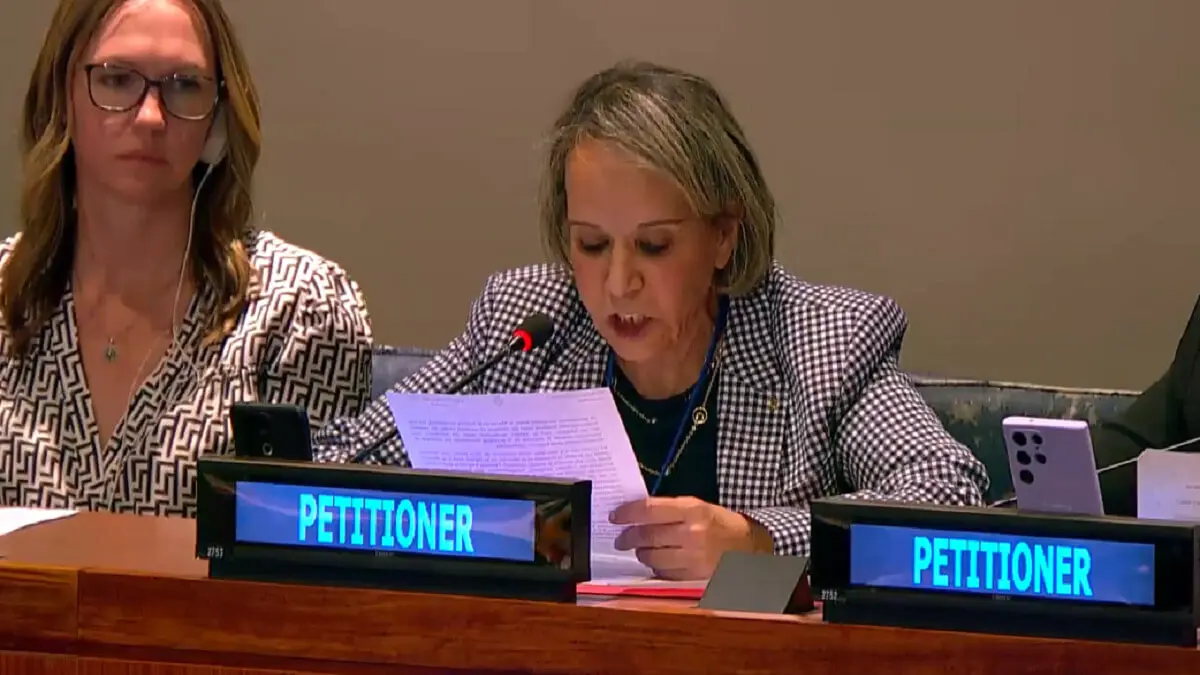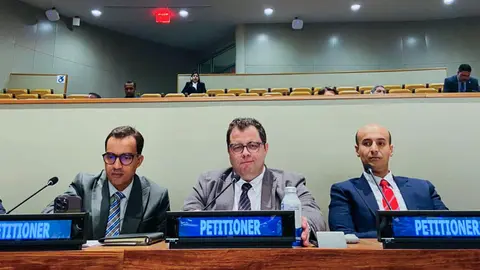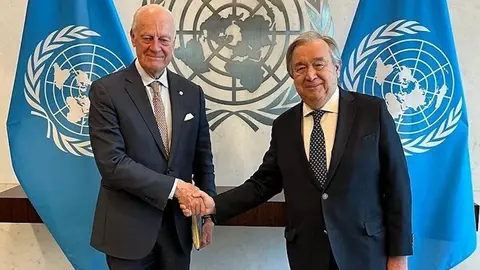From Tokyo to New York: Algeria and Polisario sow chaos at the UN

This exemplifies an escalation of diplomatic tensions and the decline of a movement that is increasingly cornered and with less international support.
The latest incident involving Nouria Hafsi, president of the National Union of Algerian Women, at the UN headquarters in New York is not an isolated case, but part of a systematic pattern of unacceptable behaviour.
The recent infiltration of the Polisario Front last summer at TICAD (Tokyo International Conference on African Development) with the help of Algerian diplomacy is another blatant example of the manipulative tactics employed by Algeria and its allies.
Moreover, on that occasion it was also a UN-sponsored event in Japan. These actions not only violate basic diplomatic protocols, but also undermine the integrity of the fora in which they participate, and undermine the credibility of any arguments they may present by revealing the deceptive nature of their strategies.
طرد مهين لممثلة النظام الجزائري 🇩🇿 المدعوة نورية حفصي بعد الكلمات المنحطة التي استعملتها وصراخها وتطاولها على رئيسة جلسة #اللجنة_الرابعة وعلى ممثلة الوفد المغربي 🇲🇦 قبل أن يتدخل الأمن بطلب من ممثلة #المغرب لإخراجها بالقوة❗دبلوماسية الحثالات كما سماهم ممثل مالي 🇲🇱 الذي وقف العالم… pic.twitter.com/F5oodepE2u
— Chawki Benzehra شوقي بن زهرة (@ChawkiBenzehra) October 9, 2024
Nouria Hafsi caused an embarrassing scandal last week during the meeting of the Fourth Committee of the UN General Assembly (IV Committee). Hafsi generated an embarrassing incident by referring to Morocco with constant disqualifications and insults, crossing all kinds of lines, which led the Moroccan diplomatic representative to make use of her prerogative and ask the chairperson of the Committee several times to interrupt the Algerian's speech.
This is done on the basis of the ‘point of order’, which is provided for in the rules of procedure. This led to a spiral of verbal violence and alienation in Hafsi, which led to her expulsion by the UN police on the orders of the chairperson.
They were not the only ones. The rhetoric employed at the UN by Polisario and Algerian representatives and associates, based on insults, falsehoods and misinformation, is riddled with historical and legal distortions. Their insistence on describing Morocco with all manner of broad-brush disqualifications deliberately disregards the historical complexity of the region and international legal developments. This simplistic narrative seeks to manipulate international public opinion and divert attention from Algeria's own involvement in perpetuating the conflict.
While Morocco successfully pursues its autonomy plan as a solution to the dispute, Polisario and Algeria continue to obstruct any progress towards a peaceful resolution. Their insistence on a referendum, which the UN has recognised as unfeasible, demonstrates their unwillingness to commit to realistic solutions.
It is also deeply worrying that some Spanish politicians - some of them present there supporting the shameful spectacle referred to above - continue to support this farce and live in the past, indulging in the ideological romanticism of a cause they have not bothered to understand in depth, and in which they remain ensconced in the self-delusion of old, outdated resolutions and the conviction of the victimisation that the Polisario has inoculated them with, a condition that only belongs to the inhabitants who are ruled with an iron fist in the Algerian camps with the connivance of the host country, Algeria.
This support not only ignores the serious accusations against the Polisario from many quarters, but also runs counter to Spain's strategic interests and regional stability.
Ultimately, Polisario and Algeria's behaviour in international fora and their disrespect for diplomatic norms, as well as their obstruction of negotiated solutions, undermine any legitimacy they might claim. The international community must recognise these tactics for what they are: the last gasps of a cause that has lost its raison d'être and serves only Algeria's geopolitical interests. It is time to prioritise a realistic solution that ensures regional stability and the well-being of all the inhabitants of the Sahara, rather than perpetuating an artificial conflict that benefits only a few.



